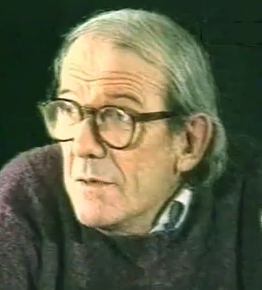Seminário de Teoria Crítica: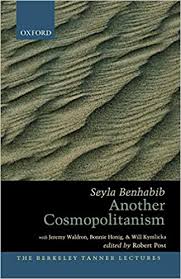
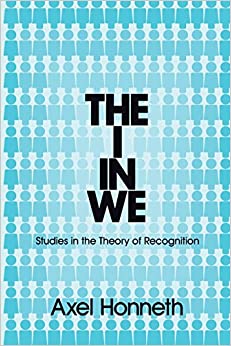
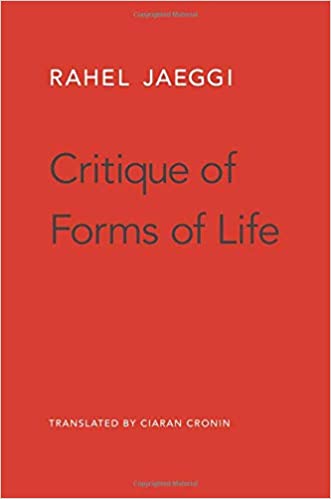

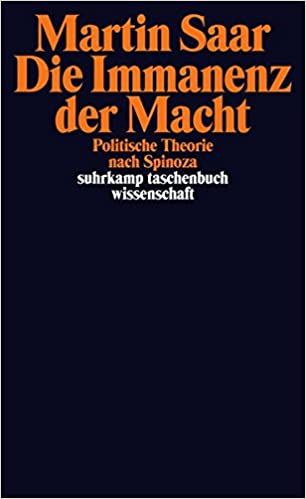

Teoria Crítica, Modernidade e Decolonialidade
Decolonialidade, feminismo e racialização:
Abordagens críticas
para emancipação




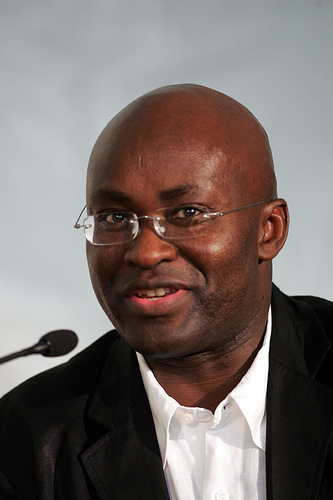


Das Andere der Kritischen Theorie / The Other of Critical Theory:
Psychoanalysis, Gender, Race
Gênero, Raça/Etnia e Decolonialidade
PowerPoint: Foucault, Subjetividade, Sexualidade (Famecos)

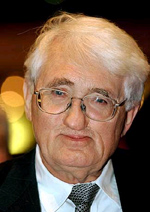
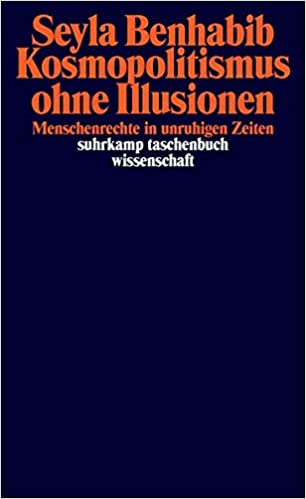
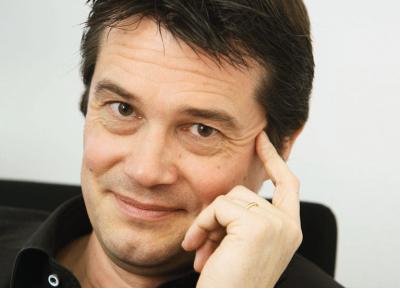
PROGRAMA:
Seminário de Teoria Crítica: "Michel Foucault, Subjetivação e Sexualidade"
Graduate Seminar on Critical Theory
Professores Nythamar de Oliveira & Camila Barbosa
DISCIPLINA: 71527-03 Teorias da Justiça, Ética e Filosofia Social VII
CRÉDITOS: 03 - ANO/SEMESTRE: 2024/2
Quartas-Feiras 19:00 h 4LMN FAMECOS - Online
Link Zoom: https://pucrs.zoom.us/j/97901439741?pwd=ZTRqUkgvSm9TWGJ4TnU3VW1hNXdaQT09
Download PDF syllabus / ementa
Plataforma Moodle
Website: http://www.nythamar.com/teoriacritica.html
0. Research Program Abstract:
"Recasting Naturalism and Normativity in Political Philosophy: Critical Theory, Reflective Equilibrium, and Normative Reconstruction"
As Pettit aptly pointed out, contemporary analytical political philosophy has been caught up in a naturalist-normative cul de sac, following the logical positivist dismissal of metaphysics and noncognitivist criticisms of value theories. On the one hand, "since there are few a priori truths on offer in the political arena, its only task in politics can be to explicate the feelings or emotions we are disposed to express in our normative political judgments." On the other hand, there remains the question of "how unquestioned values like liberty and equality should be weighted against each other."(Pettit, 2007, 8f.) Although most analytical thinkers saw that question as "theoretically irresoluble," the publication of John Rawls's A Theory of Justice in 1971 inaugurated a renewed interest in reconciling a priori claims that "may be relatively costly to revise" with the dense, changing flow of human experience, reminiscent of the practical-theoretical bridging pursued by the normative, emancipatory claims of Critical Theory, beyond positivist and instrumentalist approaches to social reality. In effect, Rawls conceived of an original position (ideal theory) as an attempt to model the considerations that determine the principles of justice for a well-ordered society, in which public criteria for judging the feasible, basic structure of society would be publicly recognized and accepted by all (nonideal theory). Hence the procedural device of rules or public criteria which parties in the original position would endorse prudentially is to be constructed from behind a veil of ignorance, so that the parties know nothing specific about the particular persons they are supposed to represent. Beyond the essentialist views of natural law and contractualist traditions, Rawls's normative conception of the person accounted for the ingenious strategy of resorting to a reflective equilibrium, conceived as a procedural device between a nonideal theory (where we find ourselves, citizens with considered judgments or common sense intuitions) and an ideal theory, in which a public conception of justice refers to free and equal persons with two moral powers (sense of justice and conception of the good). Reflective equilibrium belongs thus together with the original position and the well-ordered society, so as to carry out the thought-experiment of an ideal theory of justice which ultimately meets nonideal needs and capacities. To be sure, Rawls's original conception of "justice as fairness," following the Dewey Lectures, was recast into a "political liberalism" which resorted to a wide reflective equilibrium as a constructivist methodology of substantive justification, whose goal was certainly not to account for metaethical problems inherent in the ideas of justice and equal liberty, but to justify specific principles as a reasonable basis for public agreement in particular areas of social life. Baynes (2013, 489f.) has shown that Habermas's program of "normative reconstruction" in political philosophy explicitly refers to the Rawlsian idea of reflective equilibrium and his procedural conception for two reasons: "First, he [Habermas] claims that the fundamental ideal that forms the 'dogmatic core' of his theory is not itself simply one value among others, but reflects a basic norm implicit in the very idea of communicative action. Second, he claims that this ideal can in turn be used to describe a set of (ideal) democratic procedures. It is because the procedures sufficiently mirror this basic ideal, however, that we are entitled to confer a presumption of reasonableness or fairness upon them." According to Habermas, the normative grounds for reconstruction are implicit practices or cognitive schemas -and not unconscious experiences to be revealed by a reflective method (like psychoanalysis)-, whose reconstruction refers back to system-based rules as a general reference for all subjects in the process of identity formation and whose intuitive systems of knowledge and competencies depend on previous reconstructions (in empirical sciences like linguistics and cognitive psychology). In this research, I will investigate John Dewey's conception of reconstruction in moral and political philosophy (Dewey, 2004), as it has been critically appropriated by Rawls, Habermas, and Honneth, not only to account for the affinities between reflective equilibrium and normative reconstruction, but also with a view to better understanding why proceduralist versions of political constructivism remain a reasonable response to the ongoing challenges of cultural relativism and ever-changing pluralist, globalized societies (Benhabib 2002, 2004). Insofar as they both preserve the idea of objectivity in terms of a cognitivist view of moral normativity without falling back into intuitionist realism and reductionist versions of naturalism, I will argue that nature and culture are continuous with one another, hence an upshot of such a reconstructive conception of social evolution is that societies evolve to a higher level only when learning occurs with respect to their normative structures. Weak naturalism allows thus for social evolutionary processes guided by normative claims, in both reflexive and social terms, with a view to realizing universalizable, normative claims that are justified from the moral standpoint, always generated through reflective equilibrium, broadly conceived, and naturalized in a democratic ethos in the making. Like Rawls and Habermas, Benhabib and Honneth also resort to reflexive, reconstructive conceptions of critical theory, but by radicalizing the pragmatist turn vis à vis first and second generations, they also succeed in unveiling thick-thin problematizations within the very sought-after normativity in social, concrete experiences of freedom, recognition, and claims of cultural, political identities.
1.EMENTA:
Introdução a Teorias da Justiça e à Filosofia Social e Política, explorando e aprofundando problemas e conceitos-chave da Teoria Política, Teoria Crítica e Epistemologia Social. Partindo da leitura de textos seletos de autores contemporâneos, tais como Walter Benjamin, Theodor W. Adorno, Max Horkheimer, Herbert Marcuse, Jürgen Habermas, Seyla Benhabib, Nancy Fraser, Axel Honneth, Judith Butler, Rainer Forst, Amy Allen, Martha Nussbaum, Hartmut Rosa e Wendy Brown, este seminário introduz, explora e aprofunda conceitos, problemas e discussões atuais em Teoria Crítica, normatividade social e filosofia política. Neste seminário, que dá continuidade a nossas investigações e discussões em teoria crítica, normatividade e naturalismo, devemos explorar conceitos e problemas político-filosóficos em torno de questões da recepção da psicanálise pela teoria crítica, de identidade de gênero, raça/etnia e pós-colonialidade, permitindo uma interlocução interdisciplinar com a Psicologia, Filosofia do Direito, Teorias da Justiça e a Neurofilosofia Social, sobretudo em torno dos afetos, emoções e sentimentos sociais em seu uso cada vez mais acentuado e problemático em contextos sociais e políticos. Quase todos os textos estão disponibilizados neste site ou na internet em português, espanhol, francês, alemão ou inglês.
2. PLANO DE ENSINO:
2.1. Objetivos:
Introduzir o estudante a problemas contemporâneos de normatividade e aprofundar seus conhecimentos e reflexões em Teoria Crítica, Filosofia Política, Ética e Teoria Social.
2.2. Metodologia:
Trata-se de um curso expositivo-participativo, no qual serão requeridas leituras semanais, apresentações orais e a participação do aluno nos debates e workshops.
2.3. Avaliação:
Frequência obrigatória. Apresentação oral (pelo menos uma, em sala de aula). No final do semestre, entrega de um trabalho escrito (paper de 15 ou mais páginas; tópico e bibliografia a serem previamente discutidos com o professor).
2.4. Cronograma 2019/1:
Introdução à Teoria Crítica; problemas de Teoria Crítica: Gênero, Raça/Etnia e Pós-Colonialidade
BIBLIOGRAFIA BÁSICA:
Adorno, Theodor W. “The Actuality of Philosophy.” Telos 31 (1977): 120–33.
________. Ensaios sobre Psicologia Social e Psicanálise. Trad. Verlaine Freitas. São Paulo: Editora UNESP, 2007.
________. Against Epistemology: A Metacritique. Translated by Willis Domingo. Cambridge: Polity, 2013.
________. “Education After Auschwitz.” In Critical Models: Interventions and Catchwords, translated by Henry Pickford, 191–204. New York: Columbia University Press, 1998.
________. “Freudian Theory and the Pattern of Fascist Propaganda.” In The Essential
Frankfurt School Reader, edited by Andrew Arato and Eike Gephardt, 118–37. London:
Bloomsbury Academic, 1982.
________. History and Freedom: Lectures 1964–1965. Edited by Rolf Tiedemann. Translated by Rodney Livingstone. Cambridge: Polity, 2006.
________. Lectures on Negative Dialectics: Fragments of a Lecture Course 1965/1966.
Edited by Rolf Tiedemann. Translated by Rodney Livingstone. Cambridge: Polity, 2008.
________. “The Meaning of Working Through the Past.” In Critical Models, 89–104.
________. Minima Moralia: Reflections from a Damaged Life. Translated by E. F. N. Jephcott. London: Verso, 2006.
________. Negative Dialectics. Translated by E. B. Ashton. London: Continuum, 1973.
________. “On Subject and Object.” In Critical Models, 245–58.
________. Problems of Moral Philosophy. Edited by Thomas Schröder. Translated by Rodney Livingstone. Stanford, CA: Stanford University Press, 2001.
________. “Revisionist Psychoanalysis.” Translated by Nan-Nan Lee. Philosophy and Social Criticism 40, no. 3 (2014): 326–38.
________. “Sociology and Psychology (Part 1).” Translated by Irving Wohlfarth. New Left
Review 1, no. 46 (November–December 1967): 67–80.
________. “Sociology and Psychology (Part 2).” Translated by Irving Wohlfarth. New Left
Review 1, no. 47 (January–February 1968): 79–97.
________, Else Frenkel-Brunswik, Daniel J. Levinson, and R. Nevitt Sanford. The
Authoritarian Personality. Edited by Max Horkheimer and Samuel Flowerman. New York:
Norton, 1982.
________, Aspectos do novo radicalismo de direita. São Paulo: Editora Unesp, 2020.
________, Ensaios sobre psicologia social e psicanálise. São Paulo: Editora Unesp, 2015.
Ahmed, Sara. Cultural Politics of Emotion. Routledge, 2004 (2nd edition 2014)
Alcoff, Linda Martin and Eduardo Mendieta, eds. Identities: Race, Class, Gender, and Nationality. Oxford: Blackwell, 2008.
Allen, Amy. The End of Progress: Decolonizing the Normative Foundations of Critical Theory. New York: Columbia University Press, 2016.
________. Critique on the couch: Why critical theory needs psychoanalysis. New York: Columbia University Press, 2020.
________. “Are We Driven? Critical Theory and Psychoanalysis Reconsidered.” Critical
Horizons 16, no. 4 (2015): 311–28.
________. “Critique as Melancholy Science.” In Critique in German Philosophy, edited by
María del Rosario Acosta Lopez and Colin McQuillan. Albany: SUNY Press, forthcoming.
________. “Emancipation without Utopia: Subjection, Modernity, and the Normative Claims of Feminist Critical Theory.” Hypatia 30, no. 3 (Summer 2015): 513–29.
________. The End of Progress: Decolonizing the Normative Foundations of Critical Theory.
New York: Columbia University Press, 2016.
________. “Foucault, Psychoanalysis, and Critique: Two Aspects of Problematization.”
Angelaki: Journal of Theoretical Humanities 23, no. 2 (April 2018): 170–86.
________. The Politics of Our Selves: Power, Autonomy, and Gender in Contemporary Critical Theory. New York: Columbia University Press, 2008.
________. “Psychoanalysis and the Methodology of Critique.” Constellations 23, no. 2 (June 2016): 244–54.
Anderson, Elizabeth. Private Government: How employers rule our lives (and Why We don’t Talk about it). Princeton University Press, 2017.
Benhabib, Seyla, Judith Butler, Nancy Fraser, and Drucilla Cornel. Feminist Contentions: A Philosophical Exchange. Routledge, 1996. Em port.: Debates Feministas. SP: Ed. UNESP, 2018
Clough, Patricia Ticineto and Jean O’Malley Halley (eds), The Affective Turn: Theorizing the Social, Durham: Duke UP, 2007.
Derrida, Jacques.Freud et la scène de l'écriture, Institut de Psychanalise, 1966, L'écriture et la différence, 1967.
_______. La Carte postale. De Socrate à Freud et au-delà. Paris: Flammarion, 1980.
_______. Mal d'archive. Une impression freudienne. Paris: Galilée, 1995.
_______. Psyché. Inventions de l'autre. Paris: Galilée, 1987.
_______. États de l'âme de la psychanalyse: l'impossible au-delà d'une souveraine cruauté, Paris, 2000.
_______. René Major, "Derrida, lecteur de Freud et de Lacan" (2002)
Freud, Sigmund. The Standard Edition of the Complete Psychological Works of Sigmund Freud, 24 volumes. Edited by James Strachey. London: Vintage, 2001.
_______.Werkausgabe in zwei Bänden. Band 1: Elemente der Psychoanalyse. Band 2: Anwendungen der Psychoanalyse. Herausgegeben und kommentiert von Anna Freud und Ilse Grubrich-Simitis. Fischer Verlag, Frankfurt am Main 2006.
_______. Gesammelte Werke. Chronologisch geordnet. 19 Bände. Hrsg. v. Anna Freud u. a. London: Imago, 1940-1952.
_______. Obras incompletas de Sigmund Freud. Org. Gilson Iannini. Autêntica, 2020.
Hall, Cheryl. Passions and constraint: on the theory of liberal democracy. Chicago: University of Chicago Press, 1995.
Hoggett, Paul; Thompson, Simon. Politics and the emotions: the affective turn in contemporary political studies. New York: Continuum, 2012.
Jaeggi, Rahel. Critique of Forms of Life. Harvard University Press, 2016.
Lordon, Frédéric. La société des affects. Pour un structuralisme des passions. Paris: Seuil, 2013.
Lutz, C. A. and Lila Abu-Lughod, Language and the Politics of Emotion, Cambridge UP, 1990.
Marcuse, Herbert. Hegel's Ontology and the Theory of Historicity. Trans. Seyla Benhabib. Cambridge, Massachusetts: MIT Press, 1987.
_______. Eros and Civilization: A Philosophical Inquiry into Freud. Verso, 1955. 2a ed, 1966.
Mbembe, Achille. Crítica da razão negra. Lisboa: Antígona, 2014.
Mbembe, Achille. Necropolítica. São Paulo, São Paulo: n-1 edições, 2018.
Nussbaum, Martha. Political emotions: Why love matters for justice. Harvard U Press, 2013.
Nussbaum, M. “Constructing love, desire and care.” In M.C. Nussbaum, Sex and social justice. New York: Oxford University Press, 1999.
Stanley, Jason. How fascism works: The politics of us and them. New York: Random House, 2018.
Stets, Jan E. and Jonathan H. Turner (eds), Handbook of the Sociology of Emotions. New York: Springer, 2006
Whitebook, Joel. “Against Interiority: Foucault’s Struggle with Psychoanalysis.” In The
Cambridge Companion to Foucault, 2nd ed., edited by Gary Gutting. Cambridge U Press, 2005.
________. Freud: An Intellectual Biography. Cambridge: Cambridge University Press, 2017.
________. “The Marriage of Marx and Freud: Critical Theory and Psychoanalysis.” In The
Cambridge Companion to Critical Theory, edited by Fred Rush. Cambridge U Press, 2004.
________. Perversion and Utopia: A Study in Psychoanalysis and Critical Theory. Cambridge, MA: MIT Press, 1995.
________. “Trump’s Method, Our Madness.” New York Times, March 20, 2017,
https://www.nytimes.com/2017/03/20/opinion/trumps-method-our-madness.html.
________. “Weighty Objects: Adorno’s Kant-Freud Interpretation.” In The Cambridge
Companion to Adorno, edited by Thomas Huhn. Cambridge University Press, 2004.
Yates, Candida. The Play of Political Culture, Emotion and Identity. New York: Palgrave Macmillan, 2015.
3. BIBLIOGRAFIA:
Allen, Amy. 2016. The End of Progress: Decolonizing the Normative Foundations of Critical Theory. New York: Columbia University Press
Anderson, Elizabeth. 2002. "Situated Knowledge and the Interplay of Value Judgments and Evidence in Scientific Inquiry." In P. Gardenfors, J. Wolenski, and K. Kijania- Placek (eds.), In the Scope of Logic, Methodology and Philosophy of Science, vol. 2, pp. 497-517. Dordrecht: Kluwer.
______. 2006. "The Epistemology of Democracy." Episteme 3(1.2): 8-22.
Baynes, Kenneth, 1992. The Normative Grounds of Social Criticism: Kant, Rawls, Habermas. Albany, NY: SUNY Press.
______. 2013. "Rawls and Critical Theory." In Mandle and Reidy, 2013.
______. 2015. Habermas. Rouledge.
Benhabib, Seyla. 1986. Critique, Norm and Utopia. A Study of the Foundations of Critical Theory. New York: Columbia University Press.
______. 1996a. Democracy and difference: Contesting the boundaries of the political. Princeton, NJ: Princeton University Press.
______. 1996b. Feminist Contentions: A Philosophical Exchange. (co-authored with Judith Butler, Nancy Fraser and Drucilla Cornel) Routledge.
______. 1992. Situating the Self. Gender, Community and Postmodernism in Contemporary Ethics. Polity Press.
______. 2002. The Claims of Culture: Equality and Diversity in the Global Era. Princeton and Oxford: Princeton University Press.
______. 2004. The Rights of Others: Aliens, Residents and Citizens. Cambridge University Press.
Bernstein, Jay, 1995. Recovering Ethical Life. J. Habermas and the future of critical theory. London & New York, Routledge.
Bernstein, Richard J., 1971. Praxis and Action. Philadelphia: University of Pennsylvania Press.
Boltanski, Luc et Laurent Thévenot, 1991. De la justification. Les économies de la grandeur, Paris, Gallimard.
Boltanski, Luc and Eve Chiapello, 2005. The New Spirit of Capitalism. London-New York, Verso.
Brunkhorst, Hauke, Regina Kreide und Christina Lafont(Hrsgs), 2009. Habermas-Handbuch. Leben, Werk, Wirkung. Stuttgart: J. B. Metzler Verlag.
Butler, Judith. 1996. Merely Cultural.
______. 2005. Giving an Account of Oneself. New York: Fordham U Press.
Caputo, John D. 1998. Desmitificando Heidegger. Lisboa: Instituto Piaget. [Demythologizing Heidegger, Indiana University Press, 1993]
______. 1988. Radical Hermeneutics: Repetition, Deconstruction, and the Hermeneutic Project. Indiana University Press.
______. 1997. Deconstruction in a Nutshell: A Conversation with Jacques Derrida. Fordham University Press.
______. 1993. Against Ethics: Contributions to a Poetics of Obligation with Constant Reference to Deconstruction. Indiana University Press.
______. 1999. God, the Gift and Postmodernism. Indiana University Press.
______. 2001. Questioning God. Indiana University Press.
______. 1997. The Prayers and Tears of Jacques Derrida: Religion without Religion. Indiana University Press.
______. 1982. Heidegger and Aquinas. New York: Fordham U.P.
Book Review by E.A. Lapitan, O.P.
______. 1986. The Mystical Element in Heidegger's Thought. New York: Fordham U.P.
______. 2006. The Weakness of God: A theology of the event. Indiana U.P.
Christiano, Thomas. 1996. The Rule of the Many: Fundamental Issues in Democratic Theory, Boulder, CO: Westview Press.
Churchland, Patricia. 2002. Brain-Wise: Studies in neurophilosophy. Cambridge, Mass.: MIT Press.
______. 2011. Braintrust: What neuroscience tells us about morality.Princeton U Press.
Corchia, Luca. 2013. Jürgen Habermas. A bibliography: works and studies (1952-2013). Pisa: Arnus.
Damasio, Antonio. 1994. Descartes' Error: Emotion, reason, and the human brain. New York: Putnam. Em português: O Erro de Descartes: Emoção, razão e o cérebro humano. 2a. edição. São Paulo: Companhia das Letras, 2005.
______. 2010. Self Comes to Mind: Constructing the conscious brain. New York: Pantheon Books.
Dancy, Jonathan. 2000. Normativity. Malden, Mass.: Blackwell.
Derrida, Jacques. 1974. Glas. Collection Débats. Paris: Galilée.
______. 1993.Spectres de Marx. Paris: Editions Galilée.
______. 1987. De l'esprit: Heidegger et la question. Paris: Galilée.
______. 1990. Force de Loi: 'Le fondement mystique de l'autorité'. Cardozo Law Review 11/5-6 (1990): 920-1045.
______. 2009. Adeus. São Paulo: Perspectivas.
______. 1972. Signature, événement, contexte. Marges: de la philosophie. Les éditions de Minuit.
______. 1984. Otobiographies. L'enseignement de Nietzsche et la politique du nom propre. Galilée.
______. 1994. Politiques de l'amitié. Paris: Galilée.
______. 2004. Le concept du 11 septembre. Dialogues à New York avec Jürgen Habermas. Galilée.
______. 2011. Politique et amitié. Paris: Galilée.
Dewey, John. 2004. Reconstruction in Philosophy. Dover Publications.
Dunbar, Robin I. M. 1998. "The Social Brain Hypothesis." Evolutionary Anthropology: Issues, News, and Reviews. Volume 6, Issue 5 (1998): 178-190.
Espinosa, Baruch de. Ética. Tratado Político. Pensamentos Metafísicos. Tratado da Correção do Intelecto. São Paulo: Editora Nova Cultural, 2005.
Estlund, David. 2002. Beyond Fairness and Deliberation: The Epistemic Dimension of Democratic Authority, in Philosophy and Democracy, ed. T. Christiano, Oxford: Oxford University Press.
______. 2008. Democratic Authority: A Philosophical Framework. Princeton: Princeton University Press.
Fishkin, James. 1991. Democracy and Deliberation: New Directions for Democratic Reform. New Haven, CT: Yale University Press.
Forst, Rainer. 1994. Kontexte der Gerechtigkeit. Politishe Philosophie jenseits von Liberalismus und Kommunitarismus. Frankfurt: Suhrkamp. Port. Contextos da Justiça. Filosofia política para além de liberalismo e comunitarismo. Trad. Denilson Werle. São Paulo: Boitempo, 2010.
______. 2011. The Right to Justification: Elements of a Constructivist Theory of Justice. Jeffrey Flynn (trans), Columbia University Press. [Recht auf Rechtfertigung, 2007]
______. 2014. Justification and Critique: Towards a Critical Theory of Politics. Malden, Mass.: Polity Press.[Kritik der Rechtfertigungsverhältnisse, 2011]
Foucault, Michel. 1964. Histoire de la folie à l'âge classique, Paris, U.G.E.
______. 1966. Les Mots et les Choses. Une archéologie des sciences humaines. Paris, Gallimard.
______. 1969. L'Archéologie du savoir. Paris, Gallimard.
______. 1971. L'Ordre du discours, Paris, Gallimard.
______. 1975. Surveiller et punir. Naissance de la prison, Paris, Gallimard.
______. 1976. Histoire de la sexualité vol. 1 : La volonté de savoir, Paris, Gallimard.
______. 1984a. Histoire de la sexualité, vol. 2 : L'usage des plaisirs, Paris, Gallimard.
______. 1984b. Histoire de la sexualité, vol. 3 : Le souci de soi, Paris, Gallimard.
______. 2018. Histoire de la sexualité, vol. 4 : Les aveux de la chair, Paris, Gallimard.
______. 2001a. Dits et écrits, vol. 1 : 1954-1975, Paris, Gallimard.
______. 2001b. Dits et écrits, vol. 2 : 1976-1988, Paris, Gallimard.
______. Cours au Collège de France 1975-1976 : Il faut défendre la société, Paris, Gallimard, 1997.
______. Cours au Collège de France 1977-1978 : Sécurité, territoire, population, Paris, Gallimard, 2004.
______. Cours au Collège de France 1978-1979 : Naissance de la biopolitique, Paris, Gallimard, 2004.
______. Cours au Collège de France 1979-1980 : Du gouvernement des vivants, Paris, Seuil, 2012.
______. Cours au Collège de France 1982-1983 : Le Gouvernement de soi et des autres I, Paris, Gallimard, 2008.
______. Cours au Collège de France 1983-1984 : Le Gouvernement de soi et des autres II : Le Courage de la vérité, Paris, Gallimard, 2009.
Fraser, Nancy, 1997. Justice Interruptus. Critical Reflections on the Post-Socialist Condition, New York and London: Routledge.
______. 2013. Fortunes of feminism : from state-managed capitalism to neoliberal crisis and beyond. London and New York: Verso.
Fraser, Nancy & Axel Honneth, 2003. Redistribution or Recognition? A Political-Philosophical Exchange, London and New York: Verso.
Freeman, Samuel (ed.). 2002. The Cambridge Companion to Rawls, Cambridge University Press.
Gallagher, Shaun and Dan Zahavi. 2008. The Phenomenological Mind: An Introduction to Philosophy of Mind and Cognitive Science. Routledge.
Gazzaniga, Michael. 1985. The social brain. New York: Basic Books.
Genet, Jean. 1951. Oeuvres complètes. Paris: Gallimard.
Gettier, Edmund. 1963. Is Justified True Belief Knowledge? Analysis, 23, 121-123.
Geuss, Raymond. 1981. The Idea of a Critical Theory. Habermas and the Frankfurt School. Cambridge University Press.
Goldman, Alvin and Dennis Whitcomb (editors). 2010. Social Epistemology: Essential Readings. Oxford University Press.
Goldman, Alvin. 1997. Knowledge in a Social World. Oxford University Press.
______. 2002. Pathways to Knowledge: Private and Public. Oxford U Press.
Goodin, Robert. 2003. Reflective Democracy, Oxford: Oxford University Press.
Goodin, Robert, Philip Pettit and Thomas Pogge (editors), 2007. A Companion to Contemporary Political Philosophy. 2nd. Edition. Oxford: Blackwell.
Habermas, Jürgen. 1976. Zur Rekonstruktion des Historischen Materialismus. Frankfurt am Main: Suhrkamp. Em port.: Para a Reconstrução do Materialismo Histórico. Trad. Carlos Nelson Coutinho. São Paulo: Brasiliense, 1990.
______. 2003. Truth and Justification. MIT Press. [Wahrheit und Rechtfertigung, 1999]
______. 1971. Theorie und Praxis. 4. Auflage. Frankfurt: Suhrkamp. [1963, 1966, 1968] English Trans. Theory and Practice. Boston: Beacon, 1973. Port. Teoria e Práxis. Trad. Rúrion Melo. São Paulo: UNESP, 2013.
______. 1979. Communication & the Evolution of Society. Trans. McCarthy.Boston: Beacon.
______. 1985. Der philosophische Diskurs der Moderne. Frankfurt: Suhrkamp.
______. 1981. Theorie des kommunikativen Handelns. Frankfurt: Suhrkamp. Em port., Teoria do Agir Comunicativo Trad. Paulo Astor Soethe e Flavio Siebeneichler. Volumes I e II. São Paulo: Martins Fontes, 2012.
______. 2007. Entre Naturalismo e Religião. Estudos Filosóficos. Trad. Flavio Siebeneichler. Rio de Janeiro: Tempo Brasileiro.
______. 1992. Faktizität und Geltung: Beiträge zur Diskurstheorie des Rechts und des demokratischen Rechtsstaats. Frankfurt: Suhrkamp Verlag. (em port.: Democracia e Direito)
______. 1999. "As objecções de Hegel a Kant também se aplicam à ética do discurso?" In Comentários à ética do discurso. Lisboa: Inst. Piaget.
______. 1984. The Theory of Communicative Action I: Reason and the Rationalization of Society. Trans. Thomas McCarthy. Boston: Beacon Press.
______. 1989. The Theory of Communicative Action II: Lifeworld and System. Trans. Thomas McCarthy. Boston: Beacon Press.
______. 1998. The Inclusion of the Other: Studies in Political Theory. Ed. Ciaran Cronin and Pablo De Greiff. Cambridge, MA: MIT Press.
______. 2022. Ein neuer Strukturwandel der Öffentlichkeit und die deliberative Politik. Frankfurt: Suhrkamp.
Hegel, Georg W.F. 1979. Werkausgabe. Frankfurt: Suhrkamp.
Heidegger, Martin. 1978. Gesamtausgabe. Vittorio Klostermann.
Honneth, Axel. 2015. Die Idee des Sozialismus. Suhrkamp.
______. 2010. The Pathologies of Individual Freedom: Hegel's Social Theory. Princeton University Press,
______. 2003. Luta por reconhecimento: A gramática moral dos conflitos sociais. Trad. Luiz Repa. São Paulo: Ed. 34.
______. 1991. The Critique of Power: Reflective Stages in a Critical Social Theory. Trans. Kenneth Baynes. Cambridge, Mass.: MIT Press.
______. 2007. Reification: A Recognition-Theoretical View. Oxford University Press.
______. 2002. Das Andere der Gerechtigkeit. Aufsätze zur praktischen Philosophie. Frankfurt: Suhrkamp.
______. 2001. Leiden an Unbestimmtheit. Eine Reaktualisierung der Hegelschen Rechtsphilosophie. Stuttgart: Reclam.
______. 2003. Zwischenbilanz einer Rezeption: Frankfurter Foucault-Konferenz 2001.
______. 2011. Das Ich im Wir: Studien zur Anerkennungstheorie. Suhrkamp.
______. 2011. Das Recht der Freiheit: Grundriss einer demokratischen Sittlichkeit. Suhrkamp.
Honneth, Axel und Hans Joas(Hrsg). 1996. Kommunikatives Handeln. Beiträge zu Jürgen Habermas Theorie des kommunikativen Handelns. Frankfurt: Suhrkamp.
Honneth, Axel and Hans Joas, eds. 1988. Social Action and Human Nature. Cambridge U Press.
Howard, Dick. 2002. The Specter of Democracy: What Marx and Marxists Haven't Understood and Why. New York: Columbia University Press.
Jaeggi, Rahel. 2016. Critique of Forms of Life. Harvard University Press.
______. 2014. Alienation. New York: Columbia University Press.
Jay, Martin. 1973. The Dialectical Imagination. A History of the Frankfurt School and the Institute of Social Research, 1923-1950. Little Brown and Company. Chapter 1 (marxist.org)
List, Christian and Philip Pettit. 2011. Group Agency: The Possibility, Design, and Status of Corporate Agents. Oxford University Press.
Mandle, Jon and David A. Reidy (editors). 2013. Blackwell Companion to Rawls.
Menke, Christoph. 2022. Theorie der Befreiung. Frankfurt: Suhrkamp.
Miller, David. 2008. Grundsätze sozialer Gerechtigkeit (Theorie und Gesellschaft). In English: Principles of Social Justice (Harvard University Press, 2001).
Müller-Doohm, Stefan. 2014. Jürgen Habermas: Eine Biographie. Suhrkamp.
Nobre, Marcos (org.), 2008. Curso Livre de Teoria Crítica. Campinas: Papirus.
Nichols, Shaun. 2010. "Emotions, norms, and the genealogy of fairness. politics, philosophy & economics 9 (1): 1-22.
Oliveira, Nythamar de. 2016a. Tractatus
practico-theoreticus. Porto Alegre: Editora Fi / EDUCS.
______. 2016b. Tractatus politico-theologicus. Porto Alegre: Editora Fi / EDUCS.
______. 1999. Tractatus ethico-politicus. Porto Alegre: Edipucrs.
______. 2009. "Habemus Habermas: O universalismo ético entre o naturalismo e a religião", ethic@ 8/1 (2009): 31-50.
______. 2011. "Gadamer, a hermenêutica e a crítica ao naturalismo: Antirrealismo moral e construcionismo social," in Ernildo Stein e Lenio Streck (orgs), Hermenêutica e Epistemologia. Porto Alegre: Livraria do Advogado.
______. 2012. "Breves Observações sobre Normatividade e Naturalismo," in Epistemologia Social. Orgs. Felipe Müller & Tiegue Rodrigues. Porto Alegre: Edipucrs. p. 145-161.
______. 2003. On the Genealogy of Modernity: Foucault’s Social Philosophy. NY: Nova Science. E-book Editora Fenix (2023): https://www.fundarfenix.com.br/ebook/215socialphilosophy
Olson, Kevin. 2006. Reflexive Democracy: Political Equality and the Welfare State. MIT Press.
Owen, David S. 2010. Between Reason and History: Habermas and the idea of progress. Albany, NY: State University of New York Press.
Parfit, Derek. 2011. On What Matters, vols. I and II. Oxford University Press.
Perrick, Michael. 2016. Justification and False Belief: Gettier's First Point.
Pettit, Philip. 2002. Rules, Reasons and Norms. Oxford: Oxford University Press.
Pinzani, Alessandro. 2007. Jürgen Habermas. München: Beck. Em port.: Artmed, 2009.
Prinz, Jesse. 2002. Furnishing the Mind: Concepts and Their Perceptual Basis. MIT Press.
______. 2004a. Gut Reactions: A Perceptual Theory of Emotion. Oxford University Press.
______. 2004b. The Emotional Construction of Morals. Oxford University Press.
______. 2011. "Is Morality Innate?," in W. Sinnott-Armstrong, ed., Moral Psychology. OUP.
______. 2012. The Conscious Brain. Oxford University Press.
Railton, Peter. 2003. Facts, Values, and Norms: Essays Toward a Morality of Consequence. Cambridge University Press.
Rawls, John. 1971. A Theory of Justice. Cambridge, Mass,: Harvard University Press.
______. 1996. Political Liberalism, New York: Columbia University Press, revised edition.
______. 1999. Collected Papers. Cambridge, Mass.: Harvard University Press.
______. 1980. "Kantian Constructivism in Moral Philosophy." Journal of Philosophy 77: 515-72. In Eckart Förster, editor, Kant's Transcendental Deductions: The Three Critiques and the Opus Postumum, Stanford University Press, 1989.
______. 1999. The Law of Peoples. Cambridge, Mass.: Harvard University Press.
______. 2000. Lectures on the History of Moral Philosophy, ed. Barbara Herman. Harvard U Press.
Rehg, Wilhelm & James Bohman (eds). 2001. Pluralism and the pragmatic turn: The transformation of critical theory. Cambridge, Mass.: MIT Press.
Roskies, A. 2002. "Neuroethics for the new millennium." Neuron 35: 2103.
Rush, Fred (ed.). 2004. The Cambridge Companion to Critical Theory. Cambridge U. Press.
Safatle, Vladimir. 2015. O Circuito dos Afetos. Corpos Políticos, Desamparo e o Fim do Indivíduo.
______. 2012. Grande hotel abismo: por uma reconstrução da teoria do reconhecimento. São Paulo: WMF Martins Fontes.
______. 2010. Fetichismo: Colonizar o Outro. Rio de Janeiro: Civilização Brasileira.
Schaber, Peter (ed.). 2004. Normativity and Naturalism. Heusenstamm: Ontos Verlag, Blackwell.
Searle, John. 1995. The Construction of Social Reality. New York: Free Press.
______. 2000. Mente, linguagem e sociedade. Rio de Janeiro: Rocco.
Steinhoff, Uwe. 2006. Kritik der kommunikativen Rationalität. Eine Darstellung und Kritik der kommunikationstheoretischen Philosophie von Jürgen Habermas und Karl-Otto Apel. Paderborn: Mentis.
Struchiner, Noel, Cushman, F., Machery, E., Nadelhoffer, T., Pizarro, D.A., Prinz, J. (orgs). 2011. Ética e Realidade Atual: Implicações da Abordagem Experimental. Rio de Janeiro: Ed. da PUC-Rio.
Turner, Stephen P. 2010. Explaining the Normative. Polity.
Turner, Stephen P. and Philip Roth (eds.). 2002. Blackwell Guide to the Philosophy of the Social Sciences. Blackwell.
Voirol, Olivier. 2012a. "Teoria Crítica e Pesquisa Social: Da dialética à reconstrução". Novos Estudos 93 (2012): 81-99.
_____. 2012b. "Quel est l'avenir de la Théorie critique?" Questions de communication 21 (2012): 107-122.
White, Stephen (ed.), 1995. The Cambridge Companion to Habermas. Cambridge University Press.
Wiggershaus, Rolf. 1988. Die Frankfurter Schule. Geschichte, Theoretische Entwicklung, Politische Bedeutung. München: DTV.
4.1 Past editions / Edições anteriores do Seminário:
KT Seminar: 2018/2: 9 agosto 2018: Introdução à Teoria Crítica e ao pensamento de Axel Honneth
Teoria Crítica, Justificação e Pluralismo (2017/1)
Neste ano em que celebramos os quinhentos anos da Reforma do século XVI (1517), lembramos que Rawls já observara que aquela inaugurou de maneira definitiva o pluralismo religioso no mundo ocidental moderno: foi sobretudo com a doutrina da separação Igreja-Estado, embasada no ensino dos dois reinos (Zwei-Reiche-Lehre) pelo monge agostiniano Martinho Lutero, que concretizou-se o problema das democracias liberais modernas, a saber, como é possível existir, ao longo do tempo, uma sociedade estável e justa de cidadãos livres e iguais, profundamente divididos por doutrinas religiosas, filosóficas e morais razoáveis? (How is it possible that there may exist over time a stable and just society of free and equal citizens profoundly divided by reasonable religious, philosophical, and moral doctrines?) O problema teológico-político da justificação, originariamente formulado por Lutero, está na própria origem do pluralismo religioso e do pluralismo político que viriam a consolidar nossas ideias democráticas de tolerância, liberdade, igualdade e solidariedade em nosso mundo pós-secular.
Habermas-Rawls Debate (Journal of Philosophy)
Alexandre Sapper, Rawls, The Idea of Public Reason Revisited (Law of Peoples)
"Critique of Public Reason Revisited: Kant as Arbiter between Rawls and Habermas"
Habermas, Truth and Justification, Intro & chapter 1, Carlos Roberto Ferreira, chapters 2-3
"Kant, Hegel e a Fundamentação Normativa da Ética"
3 Abril J.G. Engelmann, Political liberalism (VII). New York: Columbia University Press, 1996
HEGEL, G. W. F. Elements of Philosophy of Right. Trad. H.B. Nisbet. Cambridge: Cambridge University Press, 1991, par. 36, 66, 75, 258
Marxists.org edition
Grundlinien der Philosophie des Rechts
Habermas, Truth and Justification, chapters 4-7
10 Abril Benhabib, The Claims of Culture
17 Abril Benhabib, "Feminist theory and Hannah Arendts concept of public space"
24 Abril Fraser, Justice interruptus
8 Maio Nancy Fraser
15 Maio Butler, Giving an Account of Oneself; Kassius Kirsten, A teoria do reconhecimento de Honneth e sua reatualização da Filosofia do Direito de Hegel
22 Maio Judith Butler
29 Maio Forst, The Right to Justification
5 Junho Rainer Forst
12 Junho Forst, Justification and Critique
19 Junho Luis Rosenfield, Robert Cover, Nomos e narração
Martin Jay, The Creation of the Institut für Sozialforschung and Its First Frankfurt Years
Wiki "Socialisme" (français)
Michael Brie und Christoph Spehr, "Was ist Sozialismus?" (Kontrovers, Rosa Luxemburg Stiftung)
18/8: Emil, Rahel Jaeggi, Entfremdung 1-2-3
25/8: Nythamar, Rahel Jaeggi, Entfremdung 4-5-6
1/9: Emil, Rahel Jaeggi, Entfremdung 7-8
8/9: Nythamar, Rahel Jaeggi, Entfremdung 9-10
15/9: Thais Marques, Amy Allen / Nythamar, Amy Allen, The End of Progress 1-2
22/9: Workshop de Teoria Crítica
Prof. Dr. Dirk Stederoth (Universidade de Kassel)
"Lady Gaga, Indústria Cultural e Música"
Prof. Dr. Hans-Georg Flickinger (Universidade de Kassel)
"Hegel, Marx e Teoria Crítica"
Auditório Térreo Prédio 40 (Museu)
29/9: 9:00 horas Emil, Amy Allen The End of Progress 3-4
29/09 às 10:00 h: Palestra: "Global challenges: homogenisation, authoritarianism, and war"
Prof. Dr. Marek Hrubec (Charles University, Praga, Rep. Tcheca)
Auditório Térreo do prédio 40 (Museu) PUCRS
6/10: Emil, Amy Allen The End of Progress 5-6
13/10 às 9:00 horas Nythamar, Wendy Brown, Undoing the demos, cap. 1-3
13/10 às 10:00 horas Palestra: "Lucratividade e Distribuição: A Origem Econômica da Crise Política Brasileira"
Prof. Dr. Adalmir Marquetti (PPG-Economia, PUCRS)
Auditório do Prédio 40 (Museu)
20/10: Não temos encontro (Anpof)
27/10: Leandro Cordioli, Justiça, Direito e Coerção em John Finnis: Legitimidade e Extensão da Punição Criminal pelo Estado; Nythamar, Wendy Brown, Undoing the demos, cap. 3-4 (Anpocs)
3/11: Emil, Wendy Brown, Undoing the demos, cap. 5-6 e epílogo
10/11: Diogo da Luz / Nythamar, Vladimir Safatle, O Circuito dos Afetos, 1-2
17/11: Emil, Vladimir Safatle, O Circuito dos Afetos 3
24/11: 9:00 h : Axel Honneth, The Idea of Social Freedom
10:00 h: Profa Dra Claudia Drucker (UFSC), Hegel, Heidegger e Adorno
Seminário Glas-Derrida (2016/1):
Neste seminário, que dá continuidade a nossas investigaçõees e discussões em teoria crítica, normatividade e filosofia política, devemos explorar o pensamento político-filosófico de Jacques Derrida, através de seu controverso texto Glas (Paris: Galilée, 1974) e escritos afins. Em seu não menos polêmico livro Der philosophische Diskurs der Moderne (Frankfurt: Suhrkamp, 1982), Habermas criticou o esteticismo de Derrida, de autores pós-estruturalistas e pós-modernos franceses, que se aproximariam de Benjamin e Adorno pela sua incapacidade de evitar um decisionismo moral e uma forma sutil de historicismo. Neste semestre, nos propomos a revisitar esses e outros problemas inerentes à querela entre modernistas e pós-modernos, o nivelamento entre filosofia (esp. Hegel) e literatura (Genet), a desconstrução da subjetividade moderna e oposições binárias entre filosofia e não-filosofia (esp. psicanálise e literatura), indivíduo e sociedade, religião, gênero e sexualidade, alteridade e identidade. Além de explorar Glas, vamos abrir para leituras, debates e apresentações de vários textos correlatos em filosofia política (Signature, Event, Context; Politics of Friendship; Specters of Marx; Force of Law: The Mystical Foundations of Authority; Philosophy in a Time of Terror: Dialogues with Jürgen Habermas and Jacques Derrida) quase todos disponibilizados na internet em espanhol ou inglês, mas vamos usar as versões disponíveis em português, francês e alemão para quem se interessar.
Download PDF Glas in English, translation John P. Leavy Jr. and Richard Rand
Download PDF Glas I en français
7 Março : Introdução à Filosofia Política de Jacques Derrida; Fabricio Pontin (Husserl), Fabio de Caprio (Fenomenologia e Hermenêutica), Nythamar de Oliveira (Glas)
Derrida en Castellano
Evando Nascimento, Derrida [acesso online Biblioteca PUCRS]
14 Março : coluna Hegel (Glas, English edition, p. 1-43) / "Hegel, Heidegger, Derrida: Desconstruindo a Mitologia Branca"
Marges --de la philosophie
Differance
De la grammatologie
Hegel by HyperText
Phänomenologie des Geistes
21 Março : Felipe S. Karasek, "Sobre a Interpretação da Natureza: Contribuições e Limites do Naturalismo para o Problema da Moral na Filosofia de Nietzsche" (a partir das 9:00 h, com a participação dos Professores Oswaldo Giacoia e Clademir Araldi)
28 Março : coluna Genet (Glas, English edition, p. 1-43) / Prof. Eduardo Luft, "Hegel, Ontologia e Sistema"
4 Abril : coluna Hegel (p. 44-86) / Jeverton Soares dos Santos, "Teologia politica e utopia social: apontamentos sobre a concepção messiânica de justiça de Walter Benjamin"
Tesis doctoral sobre Glas (Beatriz Blanco Vazquez)
Hegel after Derrida, edited by Stuart Barnett
Eticidade e Religião: O Comunitarismo do Jovem Hegel
Glas Seminar Power Point Presentation
11 Abril : coluna Genet (p. 44-86) / coluna Hegel (p. 87-139)
"Adeus: Derrida, Levinas e a epifania do Outro"
J.D., Limited Inc
18 Abril : coluna Genet (p. 87-139)
"Desconstruindo a Libertação: Derrida, Teologia e Filosofia Política"
25 Abril : coluna Hegel (p. 140-182) / Leandro Cordioli, "Como dizer algo útil em filosofia prática? Considerações a respeito da Política, IV, 1, de Aristóteles"
J.D., Acts of Religion
"The Bells" by Edgar Allan Poe (read by Tom O'Bedlam)
Bussy: Les Cloches/The Bells
2 Maio : coluna Genet (p. 140-182) / Prof. Ricardo Timm de Souza, "Rosenzweig e o múltiplo como origem"
9 Maio : coluna Hegel (p. 183-225) / Carlos Roberto Ferreira, "Kabbalah e Derrida: misticismo e desmitologização"
Jacques Derrida,"Il courait mort": salut, salut
Jean Genet, Journal du voleur
Cliff Sargent's YouTube review of Genet's Funeral Rites
16 Maio : coluna Genet (p. 183-225) / Prof. Fabio Caprio de Castro, "O Saint Genet de Sartre"
23 Maio : coluna Hegel (p. 226-261) / Prof. Norman Madarasz, "Résistances... da filosofia (à psicanálise)"
Freud y la escena de la escritura [Freud et la scène de l'écriture, Institut de Psychanalise, 1966, L'écriture et la différence, 1967]
La Tarjeta Postal. De Sócrates a Freud y más allá [La Carte postale. De Socrates à Freud et au-delà. Paris: Flammarion, 1980]
Mal de Archivo. Una Impresión Freudiana [Mal d'archive. Une impression freudienne. Paris: Galilée, 1995]
Psyché. Inventions de l'autre. Paris: Galilée, 1987 [in English]
Estados de ânimo del Psicoanálisis [états de l'âme de la psychanalyse: l'impossible au-delà d'une souveraine cruauté, Paris, 2000]
René Major, "Derrida, lecteur de Freud et de Lacan" (2002)
Elogio del psicoanálisis [Diálogo entre Jacques Derrida y Elisabeth Roudinesco. De quoi demain... Dialogue. Paris, Fayard/Galilée, 2001]
Psychoanalysis Links (Freud, Lacan and Klein)
30 Maio : coluna Genet (p. 226-261) / Jair Tauchen, "Vilém Flusser, Linguagem e Realidade"
Force of Law
Derridex: Force de loi. Le "Fondement mystique de l'autorité"
Traces: Exceptions
13 Junho : Force de Loi / Force of Law: The Mystical Foundations of Authority / Charles Borges, "Instinto e instituição em Deleuze"
Philosophy in a time of terror: dialogues with Jürgen Habermas and Jacques Derrida
20 Junho : Philosophy in a Time of Terror: Dialogues with J. Habermas and J. Derrida / Antonio Minghetti, "Derrida e sua teoria da tradução"
Cronograma 2015/2:
13/08 : Introdução à Teoria Crítica: Habermas, Faktizität und Geltung: Beiträge zur Diskurstheorie des Rechts und des demokratischen Rechtsstaats [FuG]
20/08 : Emil: I. Recht als Kategorie der gesellschaftlichen Vermittlung
zwischen Faktizität und Geltung
27/08 : Nythamar: II. Soziologische Rechts- und philosophische
Gerechtigkeitskonzepte
3/09 : Emil: III. Zur Rekonstruktion des Rechts (1): Das System der
Rechte
10/09 : Não teremos encontro (Anptecre)
17/09 : Nythamar:IV. Zur Rekonstruktion des Rechts (2): Die Prinzipien
des Rechtsstaates
24/09 : Não teremos encontro (Semana Acadêmica do PPG-Filosofia)
1/10: Emil: V. Unbestimmtheit des Rechts und Rationalität der
Rechtsprechung
8/10: Nythamar: VI. Justiz und Gesetzgebung. Zur Rolle und Legitimität
der Verfassungsrechtsprechung
15/10: Emil: VII. Deliberative Politik - ein Verfahrensbegriff der
Demokratie
22/10: Nythamar: VIII. Zur Rolle von Zivilgesellschaft und politischer
Öffentlichkeit
29/10: Emil: IX. Paradigmen des Rechts
5/11: Roundtable on Recognition & Justice (NoBrAINs Colloquium)
Moderator: Fabricio Pontin
Johannes Servan (University of Bergen, Norway), Social Distance, Depersonalization and Alienation
David Vogt (University of Bergen), Restorative Justice and Social Distance
Anders Ohnstad (University of Bergen), Individuality and collectivity in psychotherapy of addiction: Hegel, Freud, Lacan
12/11: Nythamar: Nachwort + VORSTUDIEN UND ERGÄNZUNGEN: I. Recht und Moral (Tanner Lectures 1986)
19/11: Emil: II. Volkssouveränität als Verfahren (1988)
Nythamar: III. Staatsbürgerschaft und nationale Identität (1990)
26/11: VII Simpósio Internacional sobre a Justiça
Cronograma 2015/1:
12.03 : J. Habermas, Theorie des kommunikativen Handelns [TKH]
19.03 : TKH, Band I: Handlungsrationalität und gesellschaftliche Rationalisierung
I. Einleitung: Zugänge zur Rationalitätsproblematik
26.03 : II. Max Webers Theorie der Rationalisierung
2.04 : kein Seminar : Osterfeiertag
9.04 : III. Erste Zwischenbetrachtung: Soziales Handeln, Zwecktätigkeit und Kommunikation
16.04 : IV. Von Lukács zu Adorno: Rationalisierung als Verdinglichung
23.04 : Band II Zur Kritik der funktionalistischen Vernunft
V. Der Paradigmenwechsel bei Mead und Durkheim: Von der Zwecktätigkeit zum kommunikativen Handeln
30.04 : VI. Zweite Zwischenbetrachtung: System und Lebenswelt
7.05 : VII. Talcott Parsons: Konstruktionsprobleme der Gesellschaftstheorie
14.05 : VIII. Schlussbetrachtung: Von Parsons über Weber und Marx
21.05 : Fabricio Pontin
Axel Honneth, Das Recht der Freiheit. Grundriss einer demokratischen Sittlichkeit (Suhrkamp, 2011; em ingl.: Freedom's Right: The Social Foundations of Democratic Life, Polity, 2014; Kindle e-book; en español: El derecho de la libertad: esbozo de una eticidad democrática)
14/08 : Introduction / Vorwort / Einleitung: Gerechtigkeitstheorie als Gesellschaftsanalyse
21/08 : Emil : Part I. Historical Background: The Right to Freedom / Historische Vergegenwärtigung: Das Recht der Freiheit
1. Negative Freedom and the Social Contract / Die negative Freiheit und ihre Vertragskonstruktion
2. Reflexive Freedom and Its Conception of Justice / Die reflexive Freiheit und ihre Gerechtigkeitskonzeption
28/08 : Nythamar : 3. Social Freedom and the Doctrine of Ethical Life / Die soziale Freiheit und ihre Sittlichkeitslehre
Transition: The Idea of Democratic Ethical Life / Übergang: Die Idee der demokratischen Sittlichkeit
4/09 : Emil : Part II. The Possibility of Freedom / Die Möglichkeit der Freiheit
4. Legal Freedom / Rechtliche Freiheit
11/09 : Nythamar : 5. Moral Freedom / Moralische Freiheit
18/09 : Nythamar : Part III. The Reality of Freedom / Die Wirklichkeit der Freiheit
6. Social Freedom / Soziale Freiheit
6.1. Das Wir persönlicher Beziehungen
25/09 : Emil : 6.2. Das Wir des marktwirtschaftlichen Handelns
2/10 : Nythamar : 6.3. Das Wir der demokratischen Willensbildung
(a) Demokratische Öffentlichkeit
9/10 : Emil : 6.3 (b) Demokratischer Rechtsstaat
6.3 (c) Politische Kultur: ein Ausblick
James Bohman, "Critical Theory," Stanford Encyclopedia of Philosophy
Norman Daniels, "Reflective Equilibrium," Stanford Encyclopedia of Philosophy
Rawls, John. 1999. "The Idea of Public Reason Revisited." (1997) In Collected Papers, ed. S.Freeman. Cambridge, Mass.: Harvard University Press. 1997, chapter 26. Political Liberalism, New York: Columbia University Press, revised edition, 1996. Lecture VI.
Baynes, Kenneth, 2013. "Rawls and Critical Theory." In Mandle Jon and David A. Reidy (editors). Blackwell Companion to Rawls.
Pettit, Philip. 2007. In Goodin, Robert, Philip Pettit and Thomas Pogge (editors). A Companion to Contemporary Political Philosophy. 2nd. Edition. Oxford: Blackwell.
Redécouvrir la Théorie Critique
Adrian Wilding, "The Problem With Normative Reconstruction"
14:00 h : Debate Marcos Nobre (Unicamp) e André Singer (USP), Centro de Democracia (Auditório da FFCH - Prédio 5)
Honneth, Axel. 2009. The Pathologies of Reason: On the Legacy of Critical Theory. Columbia University Press. [Pathologien der Vernunft, 2007]
Honneth, Axel. 2003. Luta por reconhecimento: A gramática moral dos conflitos sociais. Trad. Luiz Repa. S. Paulo: Ed. 34. [Kampf um Anerkennung. 1999]
Honneth, Axel. 2013. The Pathologies of Reason: On the Legacy of Critical Theory. Columbia University Press. [Das Recht der Freiheit, 2011]
Palestra do Prof. Dr. Klaus-Gerd Giesen sobre guerra cibernética
Website do Prof. Dr. Klaus-Gerd Giesen (Université d'Auvergne, Clermont-Ferrand, France)
GT Teorias da Justiça (Anpof)
4.2. Related Links :
Glas: Bíblia, Hermenêutica e Desconstrução
"Stein, a Ontoteologia e a Cosmoteologia: Reconstruindo a Ontologia Social em Heidegger, Lukács e Honneth", in A. Bavaresco, J. Guedes & H. Assai (orgs.),Ensaios de Filosofia Social e Política: Esfera Pública, Justiça e Reconhecimento, 2015.
Habermas Website
"Habemus Habermas"
Jürgen Habermas, O Discurso Filosófico da Modernidade
Habermas: Mundo da Vida e Sistema
Theodor W. Adorno - Wer denkt, ist nicht wütend
A Democracia Deliberativa segundo Habermas
PDF paper on economics and Habermas's TkH
Wikipedia (auf Deutsch): Jürgen Habermas
Wikipedia (auf Deutsch): TKH
Wikipedia (auf Deutsch): Lebenswelt
Website sobre Husserl
Wiki on Hegel's Philosophy of Right
Hegel Net
Kant, Hegel e a Fundamentação da Ética
Eticidade e Religião: O Comunitarismo do Jovem Hegel
Resenhas do livro "Das Recht der Freiheit"
Wiki on Axel Honneth
Foucault Seminar
Séminaire Gilles Deleuze
Critical Theory Seminar
Axel Honneth, "Reification"
Axel Honneth, Revista Civitas
Axel Honneth à l'Ecole Normale Sup
Axel Honneth, Das Recht der Freiheit. Grundriss einer demokratischen Sittlichkeit (Suhrkamp, 2011)
Axel Honneth Seminar
Seyla Benhabib Yale Page
YouTube: Seyla Benhabib on Migrations and Human Rights
Frankfurt School Archive
"Kritische Theorie" bei Wikipedia
Critical Theory Megasite
Wiki on KT
Stanford Encyclopedia entry on KT
Wikipedia entry on "Reification"
Rurion Melo, "Reificação e Reconhecimento: Um estudo a partir da teoria crítica da sociedade de Axel Honneth"
Fabio L. T. Crocco, "Georg Lukacs e a reificação: Teoria da constituição da realidade social"
Rogério Castro, "Lukacs e o fenômeno da reificação"
Seyla Benhabib, Critique, Norm, and Utopia, Chapters 1 and 5
Theodor Adorno and Max Horkheimer, "The Culture Industry: Enlightenment as Mass Deception"(1944)
Karl Marx, "Estranged Labour" (1844)
Gyorgy Lukács, "Reification and the Consciousness of the Proletariat" (1923)
The Critical Theory Project
Critical Theory & Frankfurt School Portal
Kellner, "Critical Theory Today"
William Leiss, "CriticalTheory and its Future"
Jürgen Habermas Archive
Habermas Forum
Adorno & Horkheimer, Dialektik der Aufklärung, Querido, 1947
Herbert Marcuse, One-Dimensional Man
2007 Talks by A. Honneth (audio)
Blog entry on Reification
Wikipedia entry on Axel Honneth
Wikipédia (français) Axel Honneth
Wikipedia (Deutsch) Axel Honneth
Book Review of The Critique of Power
Professor Honneth's Research Program at the Institut für Sozialforschung, Frankfurt
Deranty, Axel Honneth's ethics of recognition
Número da Revista "Civitas" 8/1 (2008) sobre Axel Honneth
Habermas-Rawls Blog
A. Honneth's Tanner Lecture on Reification
A. Honneth's Research Program at Frankfurt: "Paradoxes of Capitalist Modernization" (2006)
Interview avec Axel Honneth Le Monde
Entrevista com Axel Honneth Folha de São Paulo
A. Honneth, "Gerechtigkeit und kommunikative Freiheit. Überlegungen
im Anschluss an Hegel" (auf Deutsch)
A. Honneth, "Reconnaissance et justice" (en français)
A. Honneth, Entretien Philomag (en français)
Patterns of Intersubjective Recognition, Cap. 5 do "Struggle for Recognition"
Resenha do livro de A. Honneth (em port.)
Joel Anderson, Introduction to A. Honneth's The Struggle for Recognition
Neurophilosophy Graduate Seminar (Spring 2014)
Contemporary French Philosophy Graduate Seminar (in French): SÉMINAIRE "FOUCAULT: L'OEUVRE CONTINUE" (Spring 2014)
World Religions - REL 1220 (U Toledo DL)
Modern Philosophy Undergrad Seminar: Immanuel Kant (Spring 2014)
Contemporary Moral Problems - PHIL 2400-902 (U Toledo DL)
Spinoza Ethics Seminar
"O Déficit Normativo do Ethos Democrático Brasileiro"
Spinoza's Critical Hermeneutics of Revelation Fall 2013
Normativity, Naturalism, and Social Philosophy
(Critical Theory Seminar, Aug-Dec 2012)
Ethics Undergraduate Seminar (Aug-Dec 2012)
Medical Ethics (U Toledo DL)
Toward a Latin American Indigenous Philosophy
Philosophy of Culture
Der Wille zur Macht: Nietzsche-Seminar
Nietzsche e o perspectivismo político
Andrew Feenberg, "Philosophy of Technology at the Crossroads"
Wiki sobre "Técnica e Ciência como Ideologia" (em port.)
Hegel, Georg W.F. 1821. Grundlinien der Philosophie des Rechts
______. Hegel's Philosophy of Right
PHIL 3750 Social and Political Philosophy
YouTube video clips:
Th. W. Adorno und pop music
Adorno on pop music
Max Horkheimer
Herbert Marcuse (1976 interview)
M. Foucault
M. Heidegger
J.-P. Sartre
Jürgen Habermas Interview
Habermas Lectures on Kant's Cosmopolitanism
Axel Honneth interview
Website Fenomenologia
PDF version: "Towards a Phenomenology of Liberation" (APA Newsletter Fall 2010)
Husserl & Heidegger
Liberation Seminar: Latin American Theology and Political Philosophy
Experiments in Philosophical Culture:
Greek Philosophia
Latin Philosophia
Deutsche Philosophie
Philosophie française

|






